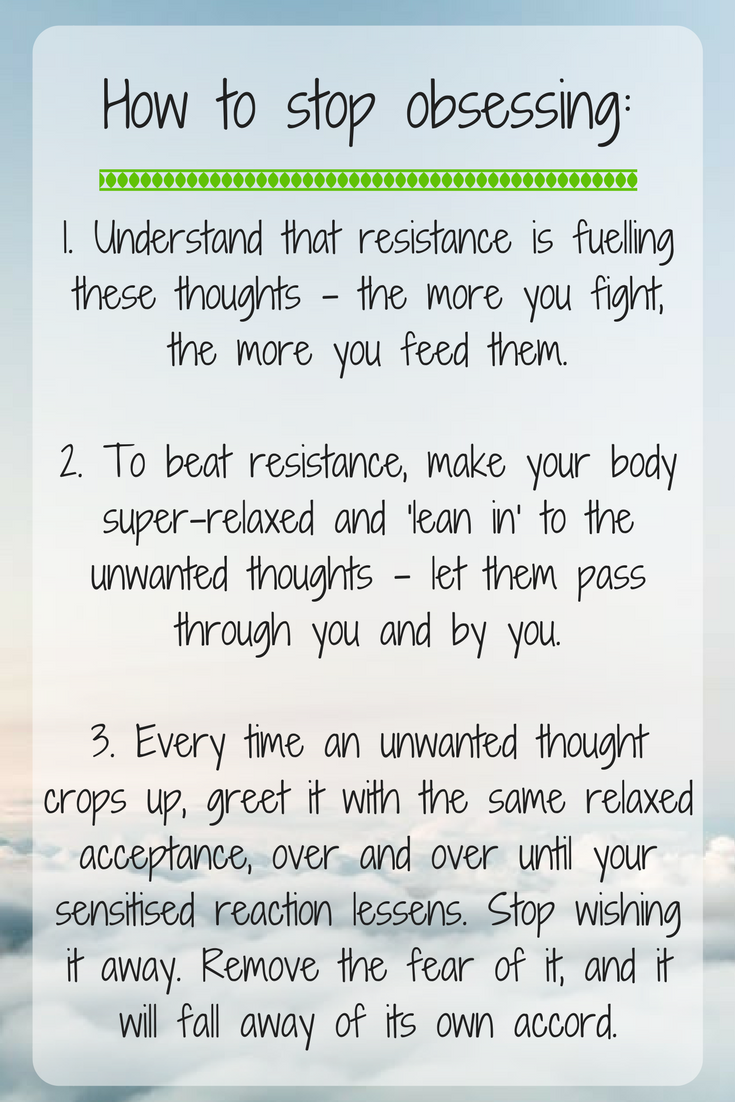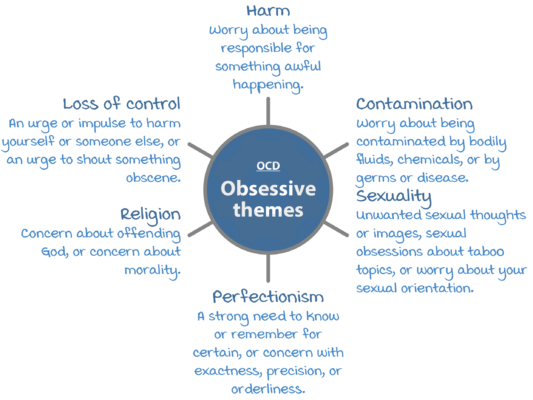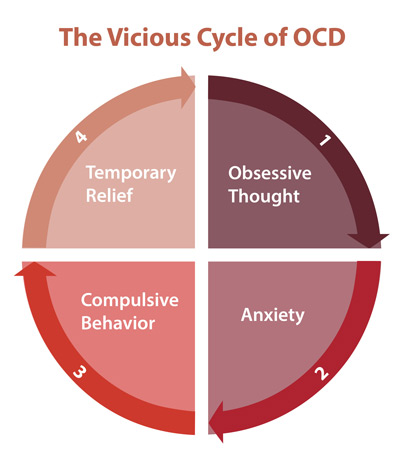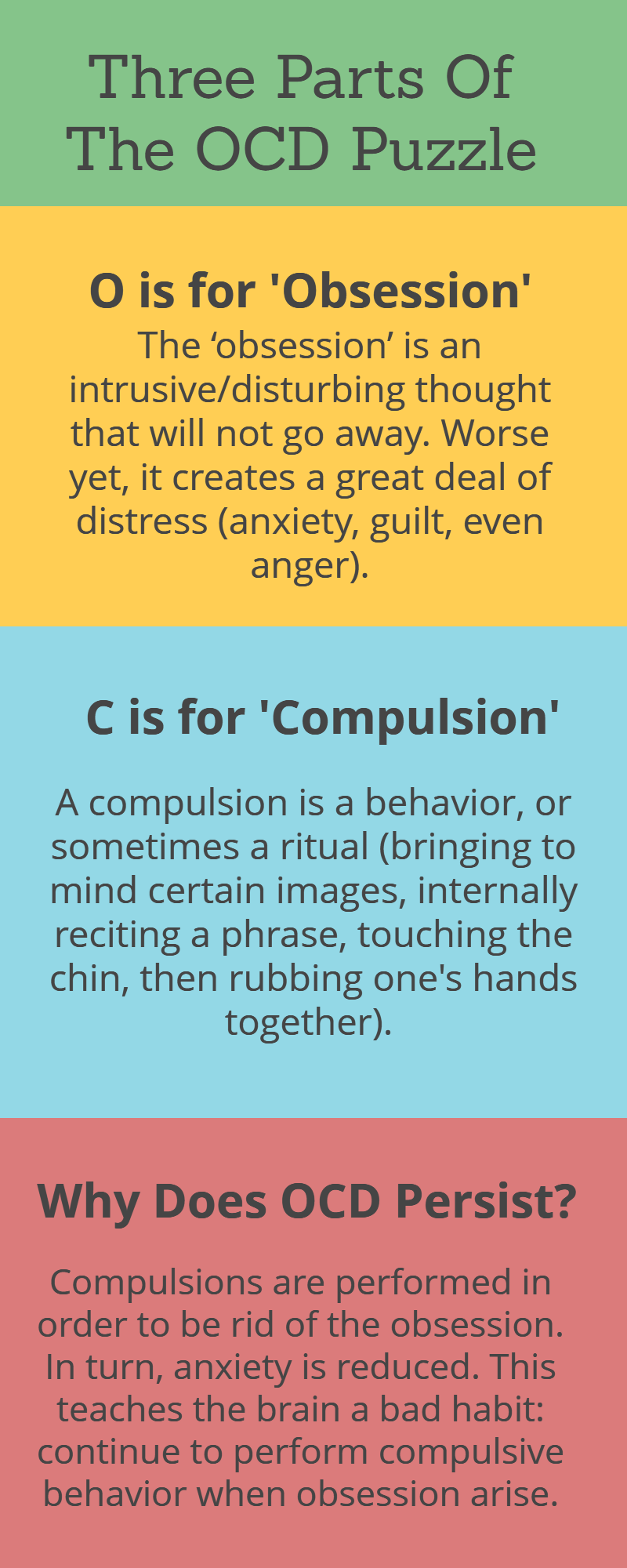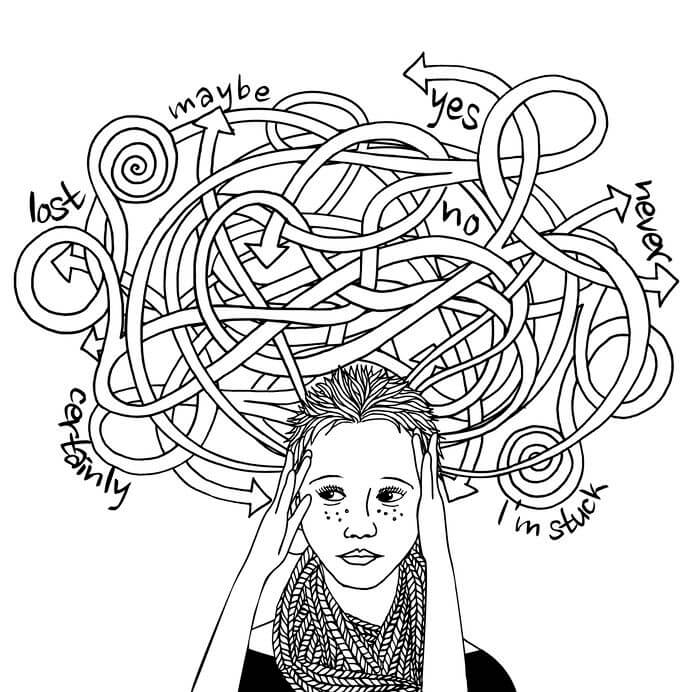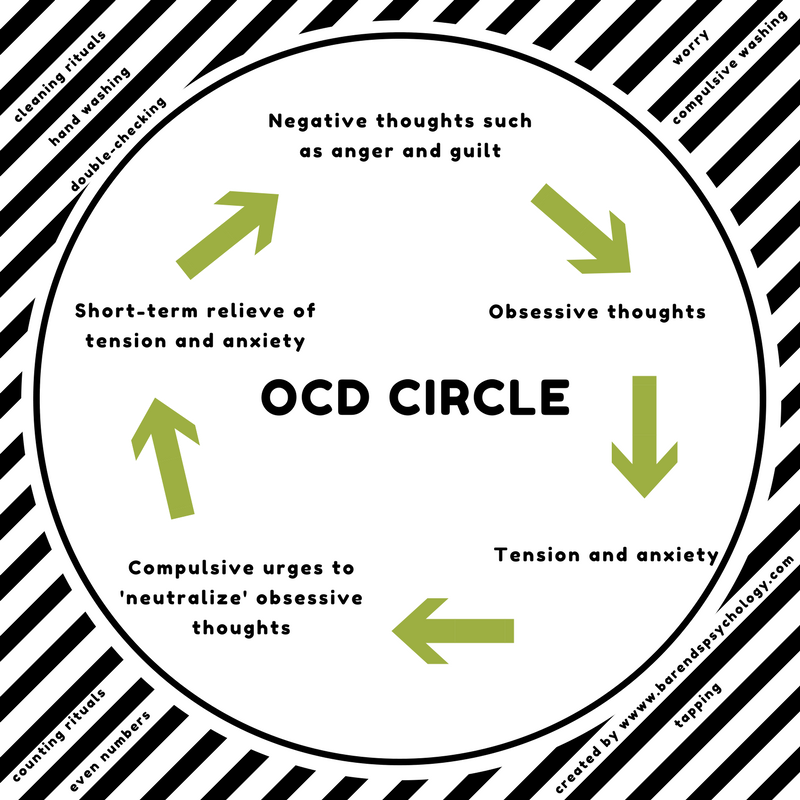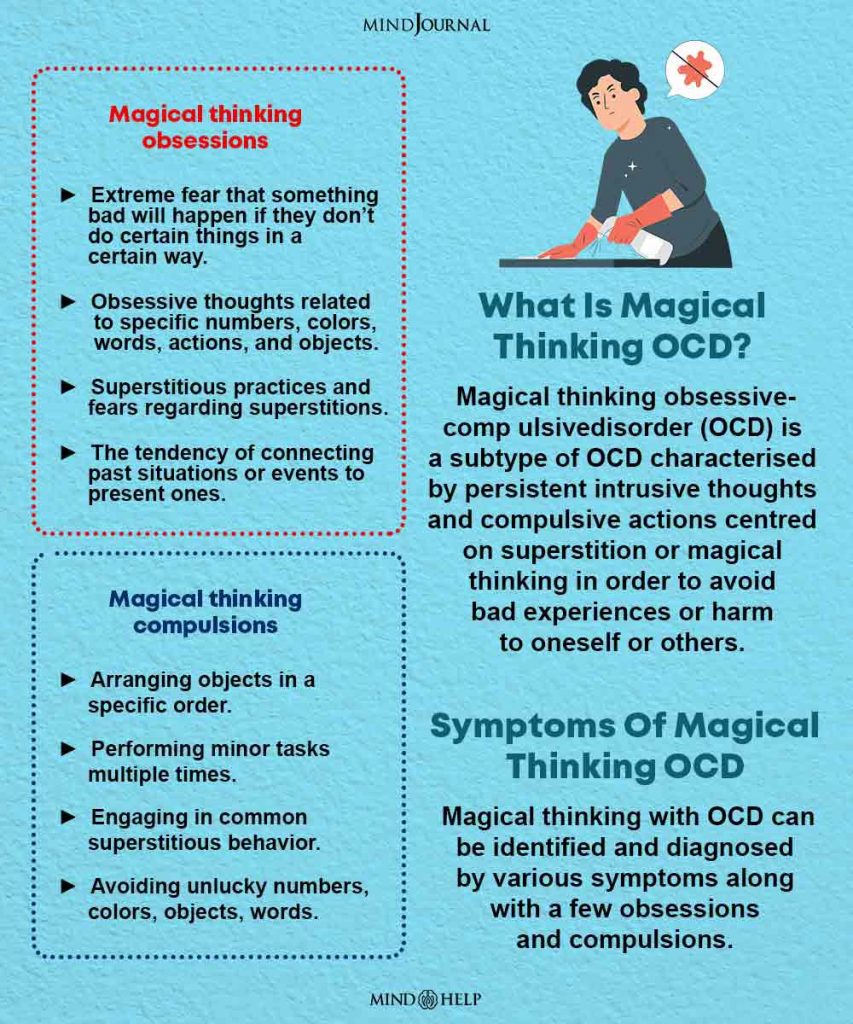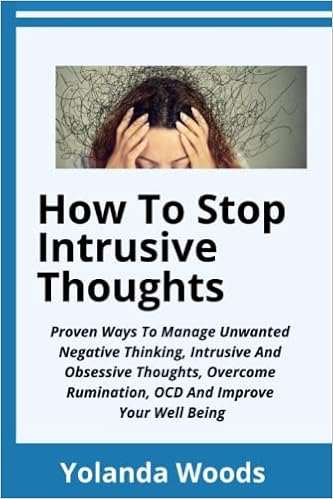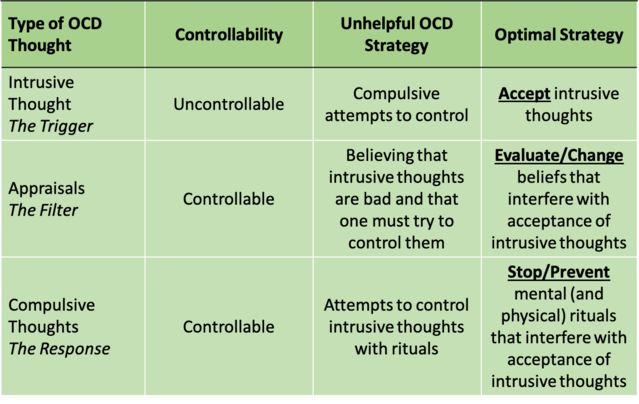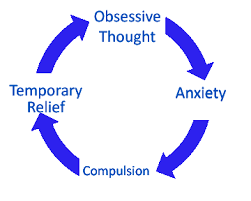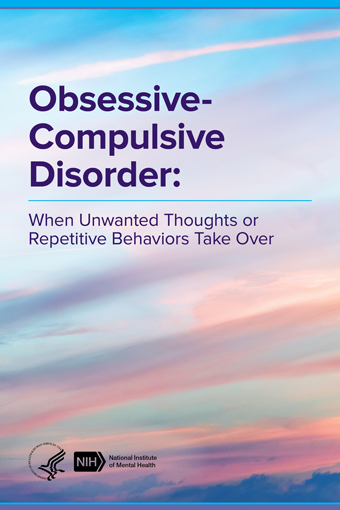Best Tips About How To Deal With Obsessive Thinking

One of the greatest challenges obsessive thinkers have is coping with unstructured time.
How to deal with obsessive thinking. With regular practice these techniques can help reduce the effects of obsessive thinking and compulsions. For instance, let’s say you’re about to attend. The most common technique that can help you manage obsessive thoughts is mindfulness meditation.
The process may help you to shift some of your general. Escape the prison of your mind and enjoy true inner freedom. If you feel overwhelmed by obsessive thinking, consider doing deep breathing exercises.
Make a list of all your obsessive thoughts. Without a specific present to return to, mindfully stepping back from obsessions doesn’t. The first step to dealing with obsessions and compulsions is to not do as your dictator within tells you, but instead to stop, step back, and notice the bossy voice as.
Look for a peaceful place, sit comfortably down, close your eyes, and take long deep. 13 easy ways to deal with obsessive thoughts #1. Many people with ocd take one or more medications to help them manage symptoms.
Then focus on the sounds, odors, and sensations around you. 7 coping strategies for overcoming obsessive thoughts 1. The next tip for how to deal with obsessive thoughts in recovery is to not buy into the thoughts after you become aware of them.
The first step to stopping obsessive thoughts from disrupting your daily life is. Coping with obsessive thoughts recognize negative thought patterns. Mindfulness meditation is a practice of sitting and paying attention to.
